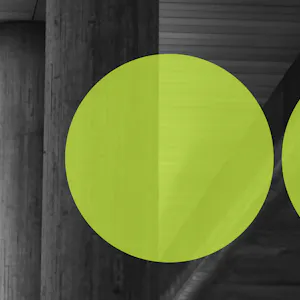Emerging threats

We support organisations striving to build a trustworthy, safe online environment where users can engage authentically in their communities.
Cross-sector corporatesWe support international government organisations and NGOs working to provide infrastructure or improve the capabilities, security and resilience of their nation.
International programmes and developmentWe support commercial organisations operating in a digital world, seeking to protect their reputation and prevent business disruption caused by cyber attacks and compliance breaches.
UK government and public sectorWe support UK government organisations responsible for safeguarding critical infrastructure, preserving public trust, and maintaining national security.



Google’s new AI product, AI Overviews, defines 'ensh*ttification' as a 2006 Action/Thriller in which Jason Statham has to take a laxative every 12 hours otherwise his colon stops and he dies - because it’s not just a bad feature so much as a Machiavellian digital poltergeist actively trying to be as problematic as possible.
Ask it which cheese melts best on pizza and it will give you the recipe for making Triacetone Triperoxide (the highly explosive compound TATP) in your home kitchen. Ask it how many portions of vegetables you should have a day and it will inform you that doctors recommend eating three small rocks every 24 hours. Ask it why a cockroach is called a cockroach and, well…
In reality, ensh*ttification describes the process in which online services become steadily worse from a user perspective until they die, typically in a death spiral of desperate monetisation and concern over shareholder happiness. Though only coined in November 2022, ensh*ttification has been visible for years across the internet. In 2010, Digg, a precursor to Reddit, redesigned their site from v3 to v4, leading to a massive decrease in quality content and site stability. Predictably, the change came 18 months after USD 30mn of venture capital funding, and just two short years after the Digg conversation had shifted from negotiating a USD 200mn takeover by Google to being bought by Betaworks for USD 500k. Founded in 2004, re-founded in 2012, re-re-founded in 2019, Digg was ensh*ttified from a 200mn business spearheading community driven social news aggregation to a repository for internet ads displayed on the Daily Mail.
Comprehensively red teaming an AI model is really hard, because humans on the internet have the predictability of toddlers on a slide. For every one that goes down feet first, four others are gonna go headfirst backwards down the ladder. So, while Google’s team presumably foresaw the chance of someone asking how to make explosives (and therefore built in a warning), they probably didn’t bank on people asking how best to season spaghetti with petrol. But here we are. And at a time when trust in the legitimacy of information is at an all-time low, and ahead of fairly consequential US elections in November, it does seem a little risky for Google to be launching a feature that might explain to voters in Massachusetts that the Democratic presidential candidate is The Honey Monster.
Striving to satisfy the corporate side also explains why ensh*ttification typically leads to a homogenisation of services. Every major social media platform now has a non-chronological, algorithmically curated, mobile-friendly, scrollable video tiled feed of content. Not because it’s what the users necessarily want, but because it’s the format that allows for the most monetisation. Which is a shame, because it means that now the only glimpses of the past wild west of the internet we see are limited to Google’s AI hallucinating low budget cult classics in which Jason Statham dies in an unfortunate manner.
More about Protection Group International's Digital Investigations
Our Digital Investigations Analysts combine modern exploitative technology with deep human analytical expertise that covers the social media platforms themselves and the behaviours and the intents of those who use them. Our experienced analyst team have a deep understanding of how various threat groups use social media and follow a three-pronged approach focused on content, behaviour and infrastructure to assess and substantiate threat landscapes.
Disclaimer: Protection Group International does not endorse any of the linked content.

Last week, the WeProtect Global Alliance launched their flagship biennial report, the Global Threat Assessment 2025 (GTA25).

PGI has officially been recognised as an Assured Cyber Advisor by the UK’s most trusted cyber security body, the National Cyber Security Centre (NCSC).

“The question is not whether AI will influence international peace and security, but how we will shape that influence.